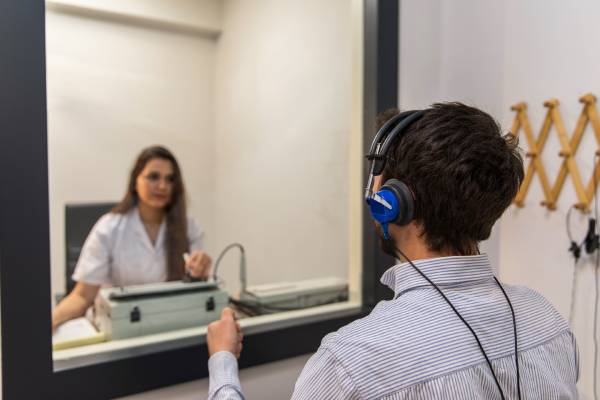What Does High Frequency Hearing Loss Sound Like?
Ever feel like you can hear, but you can’t quite make out what’s being said? Maybe you catch the low rumble of a voice...
Posted on June 15, 2023
Hearing LossGetting a hearing test is the first step in an individual’s hearing health journey. Here are answers to common questions about the process.

Since hearing loss happens gradually over time, many people are unaware they have it until it reaches an advanced stage.
Unfortunately, untreated hearing loss of any degree has serious consequences for more than your ears—it can also impact your physical, mental and emotional well-being.
Studies have shown that it:
The earlier you know about a hearing problem, the sooner you can treat it to help minimize the negative side effects listed above.
If you don’t have insurance, you can expect to pay up to $250 for a hearing test.
Hearing tests are usually fully covered by many insurance companies and partially covered under Medicare. You should expect to provide a co-pay, however.
Only an audiologist has the advanced education and training to properly test, diagnose and treat your hearing loss. Hearing specialists, who have a high school diploma and some hearing-related training, may also perform a hearing test.
Your audiologist will give you a series of tests to measure:
Your results will determine what options your audiologist will recommend. If hearing aids are right for you, they’ll work with you to determine which models best meet your needs, fit them and provide ongoing support to help you adjust to a new way of hearing the world.
Ready to schedule your test? Request an appointment today!
Ever feel like you can hear, but you can’t quite make out what’s being said? Maybe you catch the low rumble of a voice...
Have you ever opened that kitchen drawer and found a little hoard of stuff you forgot you had? Maybe some stray rubber bands, a...
Tympanosclerosis is a post-inflammatory condition affecting the tympanic membrane, or eardrum, and middle ear. Tympanosclerosis can result in hearing loss or be asymptomatic and...
Otomycosis is a fungal ear infection affecting the outer ear. Fungal ear infections are less common than bacterial infections, making up 10% of all outer...